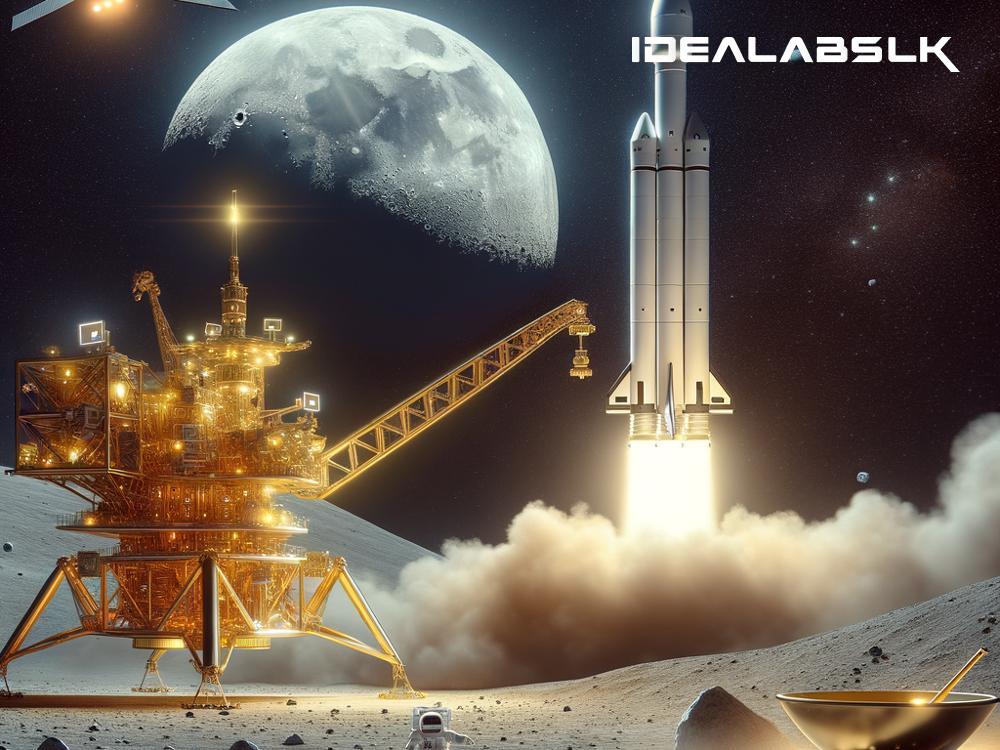Elon Musk’s SpaceX and the Future of Lunar Mining: How the Moon Could Become a Source of Resources for Mars
The idea of setting foot on Mars has long been a dream for humanity, and Elon Musk, the visionary CEO of SpaceX, is determined to make it a reality. However, before humanity can establish a colony on the Red Planet, there are several challenges to overcome, not least of which is the question of resources. How do we provide everything a Mars colony needs to survive, let alone thrive? Surprisingly, the answer might not be on Mars or Earth but our very own Moon. Let's explore how SpaceX's ambitious projects might turn the Moon into a crucial pit stop for Mars missions.
The Role of the Moon
Landing on the Moon was a monumental achievement for humanity. However, in the grand scheme of space exploration, our lunar neighbor has the potential to serve a much larger purpose. The Moon is packed with resources, from vast amounts of ice in its shadowed craters, which could be turned into water, to oxygen and even precious metals. These resources could be incredibly valuable for space missions, serving as a source of fuel, air, and building materials.
SpaceX is currently focusing on the development of the Starship spacecraft, designed to carry humans to Mars. But before Starship sets its course for the Red Planet, SpaceX is eyeing the Moon for a test run and potentially much more. The idea is not just to land on the Moon again but to start mining it for resources.
The Vision for Lunar Mining
Imagine a future where robotic miners roam the Moon's surface, extracting ice from craters and minerals from the rocks. These resources could be processed right there on the Moon, turned into rocket fuel, or shipped to orbiting space stations. Such an operation would dramatically reduce the cost and complexity of sending missions to Mars and beyond by providing a nearby source of essential supplies.
Elon Musk's vision goes beyond mere supply missions. He imagines using the Moon as a staging ground for Mars. Instead of launching everything Mars settlers need directly from Earth, which is expensive and inefficient, missions could first stop on the Moon to pick up supplies. This approach would make Mars missions more feasible and affordable, a crucial step toward Musk's dream of making humanity a multi-planetary species.
The Challenges Ahead
Turning the Moon into a resource depot for Mars missions is no small feat. There are significant technical, logistical, and regulatory hurdles to overcome. For starters, we need the technology to mine and process lunar materials efficiently. SpaceX and other companies, along with government space agencies, are hard at work developing the necessary technologies, but it's still early days.
There's also the challenge of actually getting to the Moon and back regularly. SpaceX's Starship is designed to be fully reusable, which would lower the cost of space travel significantly. However, Starship is still in the testing phase, and regular trips to the Moon and Mars are still a ways off.
Finally, there's the question of international space law. The Moon is considered a common heritage of humanity, and mining it for resources raises legal and ethical issues. An international framework governing such activities will need to be developed to ensure that the Moon's resources are used responsibly and for the benefit of all.
The Future is Bright
Despite the challenges, the potential benefits of lunar mining are too significant to ignore. Not only could it help make Mars colonization feasible, but it could also open up the rest of the solar system to exploration. The Moon could become the hub of a vast space-based economy, providing resources for missions to more distant destinations.
Elon Musk's SpaceX is at the forefront of turning this bold vision into reality. While there's still a long road ahead, the possibility of using the Moon as a springboard to Mars and beyond is closer than ever to becoming true. As we continue to explore and understand our place in the cosmos, the Moon — once seen as the final frontier — may just be the beginning.

